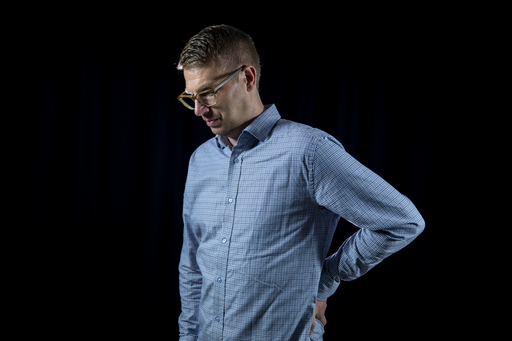Pain, gender norms and psychosocial resources. A critical appraisal of taken for granted ideas on men and women with pain
Short description
Nineteen percent of the adult population in Western societies suffer from long-lasting pain which has negative effects on physical health, mental health, quality of life, work capacity, family relations, household duties and leisure activities. Research has shown differences between men and women, how they perceive, describe and handle pain, and how they are treated in health care. In this research project we want to explore and analyse gender norms about men and women with pain. Further, we want to examine associations between sex, gender, psychosocial resources and pain. Deepened knowledge about gender and pain is a prerequisite to improve gender equity in health care.

“Brave men” and “emotional women”…
… is the title of a literature review that compiles and analyses gendered norms about men and women with long-lasting pain and gender bias, medically unmotivated differences between men and women, in health care. Seventy-seven included scientific articles describe how men and women with long-lasting pain are expected to be, to express their pain, handle their life and how the pain affected their identity in different ways. As an example, several studies showed that women with pain were dismissed as hysterical. Other studies described how men with pain diagnoses were perceived as feminine and had to struggle with their sense of masculinity. The literature review shows that gendered norm in health care are common. Researchers and clinicians need to be aware of gendered norms and gender bias, to able to provide equitable care based on every patient’s need instead of presumptions about what we believe men and women need.
“Sense of control”…
… is an interview study. Five women and three men with long-lasting pain described how multimodal pain rehabilitation had affected their everyday life. The participants experienced that pain rehabilitation had helped them to find a better sense of control over their pain and daily life. They described a trustful patient-provider-relationship, based on trust on the providers competence, as necessary for their pain acceptance. Better knowledge, particularly on body function and medication was also important. Research has earlier described social support as an important coping strategy. In this study the participants did not perceive social support as crucial when it comes to handle pain in everyday life. The participants in our study were aware of gendered norms in health care and saw that as a potential obstacle for equity in health care.
General self-efficacy and social support in men and women with pain…
This population-based study includes data from 2225 women and 1785 men from the Health Assets Project. The cross-sectional part aimed to assess the distribution of general self-efficacy, instrumental social support and emotional social support among men and women with frequent pain, and to assess if the distribution of these psychosocial resources differs between men and women with frequent pain compared to men and women with less frequent pain. The longitudinal part of this study aimed to assess differences between men and women with frequent pain in the longitudinal associations between general self-efficacy, instrumental and emotional social support and pain frequency. The results showed that women with no frequent pain had stronger instrumental social support than men. Women with frequent pain did not have stronger instrumental social support than men. Women with strong social support (instrumental and/or emotional) had a lower risk of developing frequent pain, men with strong emotional social support had a higher risk of developing frequent pain.
Psychosocial resources predict frequent pain differently for men and women: a prospective cohort study (submitted)
This population-based longitudinal study is based on data from the Health Assets Project, including data from 1194 women and 1069 men. We assessed how psychosocial resources (general self-efficacy, emotional social support, instrumental social support) among men and women with less frequent pain at baseline predicted their pain frequency at follow-up.

Publications
- ”Brave men” and ”emotional women”: A theory-guided literature review on gender bias in health care and gendered norms towards patients with chronic pain
- "Sense of control": Patients' experiences of multimodal pain rehabilitation and its impact in their everyday lives"
- General self-efficacy and social support in men and women with pain – irregular sex patterns of cross-sectional and longitudinal associations in a general population sample